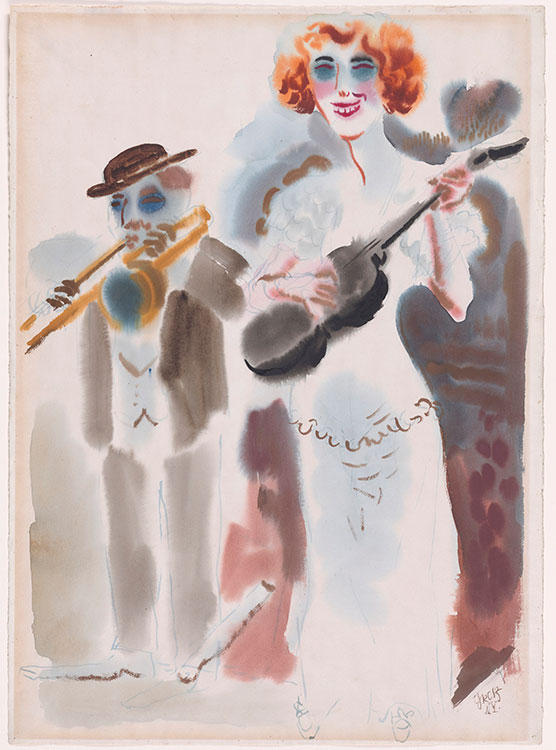
Grosz's fame derives primarily from his satirical depictions of Weimar Germany. Active in communist and revolutionary organizations, he published satirical newspapers and produced caricatures, collages, and photomontages intended to promote the workers' cause by portraying the collapse of capitalism. By 1932, as the rise of fascism made it dangerous for him to remain in Germany, Grosz accepted an invitation to teach at the Art Students League in New York. The numerous sketches and watercolors he produced during his first months in New York demonstrate his eagerness at capturing on paper all aspects of American life, especially the characters he encountered on the street. This drawing records a scene observed in the street or at a variety show. Even though he still used exaggeration, Grosz's vision of humanity appears to have become more sympathtic.
Signed at lower right, "Grosz / N.Y."; verso: Pencil sketch of female musician; estate stamp with number "1/93/7"; dated "1932".
